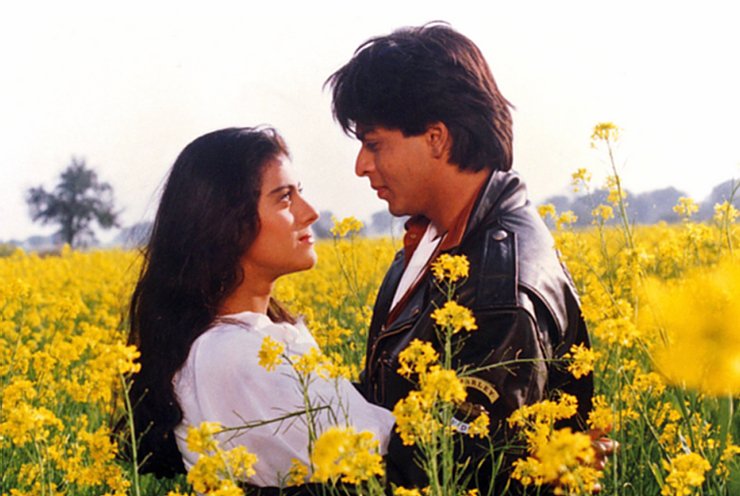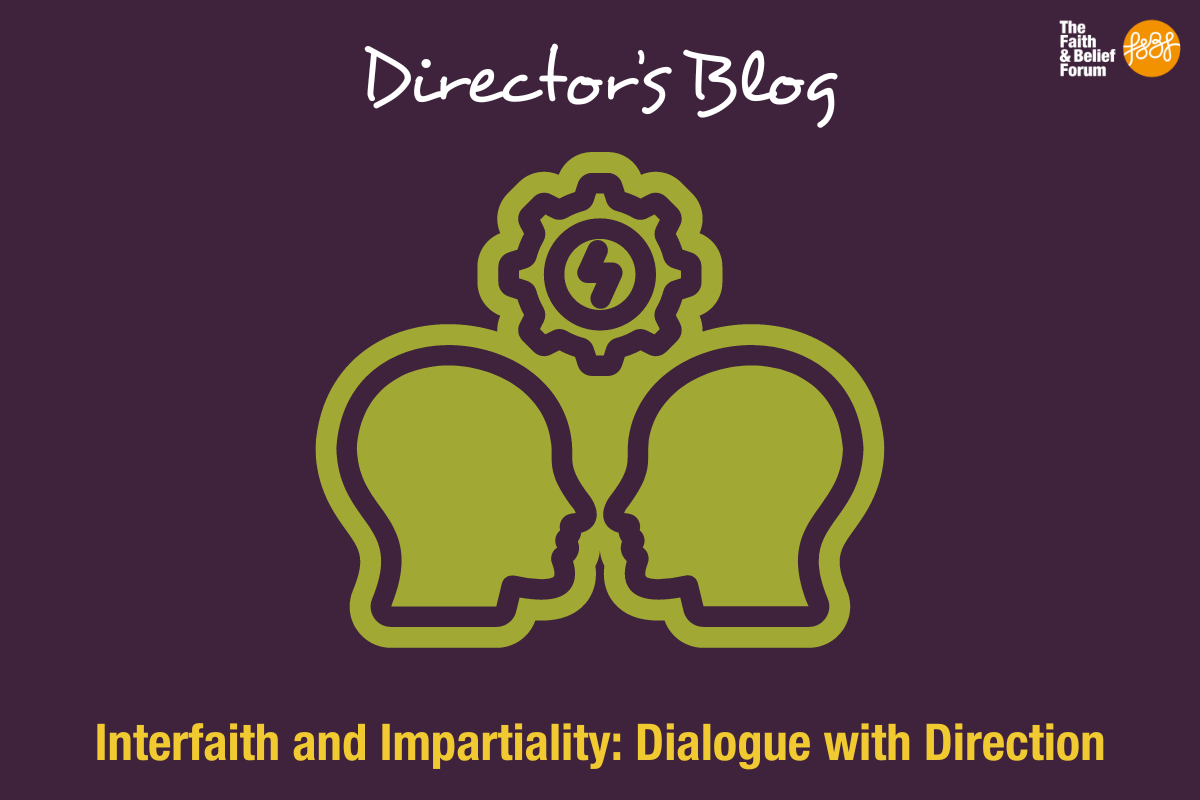
Challenging Faith Based Hate: True Stories
16 / 02 / 24
Menu

05 / 02 / 21
An insight into the silence of India’s Film Industry on the Kisaan Protest from Jasmine Rai on the ParliaMentors programme at the University of Birmingham.
As an absolute Bollywood junkie, I’ve occupied my time during the COVID-19 lockdown through the escapism of Bollywood movies. I began by re-watching all of my childhood favourites, including Dilwali Dulhania Le Jayenge and Veer-Zaara, both set in the beautiful backdrop of my motherland, the Punjab. After watching Karan Johar’s recent film Good Newwz, I started to notice a frequent trend within Bollywood films which places Punjabi Sikh characters as subordinates.
Good Newwz is packed with uncomfortable stereotypes of Punjabi Sikhs. The comedy juxtaposes a Hindu couple from Mumbai, played by Akshay Kumar and Kareena Kapoor, with a Sikh couple from the Punjab, played by Diljit Dosanjh and Kiara Advani. Whilst Kumar and Kapoor’s characters are somewhat classy, Dosanjh and Advani are given the complete opposite characteristics. Dosanjh’s overly loud and annoying character reinforces the tendency for Bollywood films to caricature Sardar characters as jokers. Overall, the Punjabis are painted as outright stupid throughout the film as they frequently mispronounce English words for comedic purposes, which only serves to depict them as intellectually inferior. This is in contrast to Kumar and Kapoor’s cold sophistication.
Since watching Good Newwz, I’ve started to question the representations of Punjabi Sikhs in Bollywood films. This led me to base my undergraduate dissertation on exploring whether stereotypes of Punjabi Sikhs affect perceptions of their identity. My research into this topic is timely given the recent criticisms of the Bollywood industry. Across the world, large protests have taken place in order to raise awareness about the negative impact of India’s new agricultural laws on farmers across India, including the Punjabi agricultural community. Social media has played an integral role in helping to spread awareness on the current protests taking place in India. However, anger has grown over the lack of support that farmers have received from Bollywood celebrities with large platforms. Bollywood megastar Kangana Ranaut even denounced celebrities such as Diljit Dosanjh who have publicly spoken out about the issue for ‘misleading and encouraging’ protests which she describes as ‘violent’, despite all protests in India being held peacefully. This has raised questions about Bollywood’s relationship with the Punjabi Sikh community more generally.
There is nothing new about religious stereotyping in Bollywood films. Whilst Sikhs are usually depicted as clowns, you’ll find that Muslims tend to be portrayed through an orientalist lens, typically wearing kohl around their eyes to signify their villainy. The Bollywood industry has continuously been criticised for promoting a majoritarian view of Indian identity which depicts religious minorities as the ‘other’. Negative representations of religious minorities are therefore reflective of the rising influence of right-wing Hindu nationalism in India’s current political landscape. This contributes to an already volatile environment in India, where Sikh protesters were recently violated by the Indian police with tear gas and water-cannons upon entering the capital city of Delhi.

The box office success of Dilwale Dulhania Le Jayenge in 1995 placed the Punjab and its yellow mustard fields as the perfect cinematic backdrop for Bollywood films for years to come. Whether its Jab We Met or Namaste London, Bollywood simply cannot get enough of the Punjab. Most Punjabis can agree that Bollywood loves to ruin Punjabi songs by remaking them into Bollywood adaptations. Despite this love for the Punjab, it is disheartening that this was not translated into support for Punjabi farmers. Whilst Bollywood has capitalised from Punjabi culture, music and fashion for commercial gain, the industry has distanced itself from the issues and struggles facing the Punjabi community. Due to the history of oppression that Sikhs have faced in India, they often feel like a dislocated community in the nation. Thus, by culturally appropriating Punjabi identity and portraying Sikhs through negative representations, Bollywood continues to undermine and silence the realities of the Sikh community.
The rising economic influence of Sikhs and the contributions they make towards the success of Bollywood films in the overseas markets has led to a revision of Sikh representation. In older Bollywood films, Sikhs only tended to play cameo roles such as background Bhangra dancers in the occasional ‘bale bale’ moments within songs like Kabhi Khushi Kabhi Gham’s ‘Shava Shava’. Although scenes like this are still common, Sikh representation on screen seems to be increasing with more Sikh characters playing main roles. Punjabi-based Bollywood film, Singh is Kinng was celebrated for including a Sikh character as the protagonist. However, this is surely justified considering the Indian state of the Punjab consists of a large Sikh-majority. The increasing representation of Sikhs is encouraging, yet it is another example of Bollywood trying to maximise their financial returns due to the rising Sikh market audience.
It is easy to be passive to the social constructs of identity within Bollywood films. However, the next time you watch one, I encourage you to question the representations of the Punjab and Sikhs. There is often a political and economic agenda behind these representations which is problematic given the role that the influence that the media plays in influencing how audiences perceive minorities. Since Rihanna tweeted ‘why aren’t we talking about this?!’ in response to India’s internet blockade due to tension between the police and farmers in Delhi, Bollywood’s silence is even more embarrassing. Farmers are now relying on non-Indian celebrities such as Rihanna and Greta Thunberg to create some noise about this protest on an international scale.
This triggered a flurry of tweets amongst Bollywood celebrities which almost all cited that India must ‘remain united as a nation’. The identical nature and wording of these tweets seems suspicious which has led some to suggest that these celebrities were advised by the Indian government to write them. These tweets also push forward a nationalist rhetoric which tactically ignore the police brutality that farmers have faced in the past week. At a time when the Indian government have committed human rights atrocities against Punjabi farmers, Bollywood now needs to step up and stand up for the Punjabi people from whom they have profited and exploited so much for their own gain. Instead, Bollywood remains ignorant and silent and, for the Punjabi community around the world, this silence is deafening.

Jasmine is studying Policy, Politics and Economics at the University of Birmingham. Her interest in this area stemmed from learning about the political and economic impacts of British colonialism in the Punjab. Jasmine is currently working on multiple projects including the ParliaMentors team’s social action project, widening access to resources in prisons and working on the UK Punjabi Heritage Association team for their 2021 virtual book club. Social Media handles: @jasminerai
This article first appeared on the Asian Woman Festival website

16 / 02 / 24

15 / 02 / 24

16 / 01 / 24